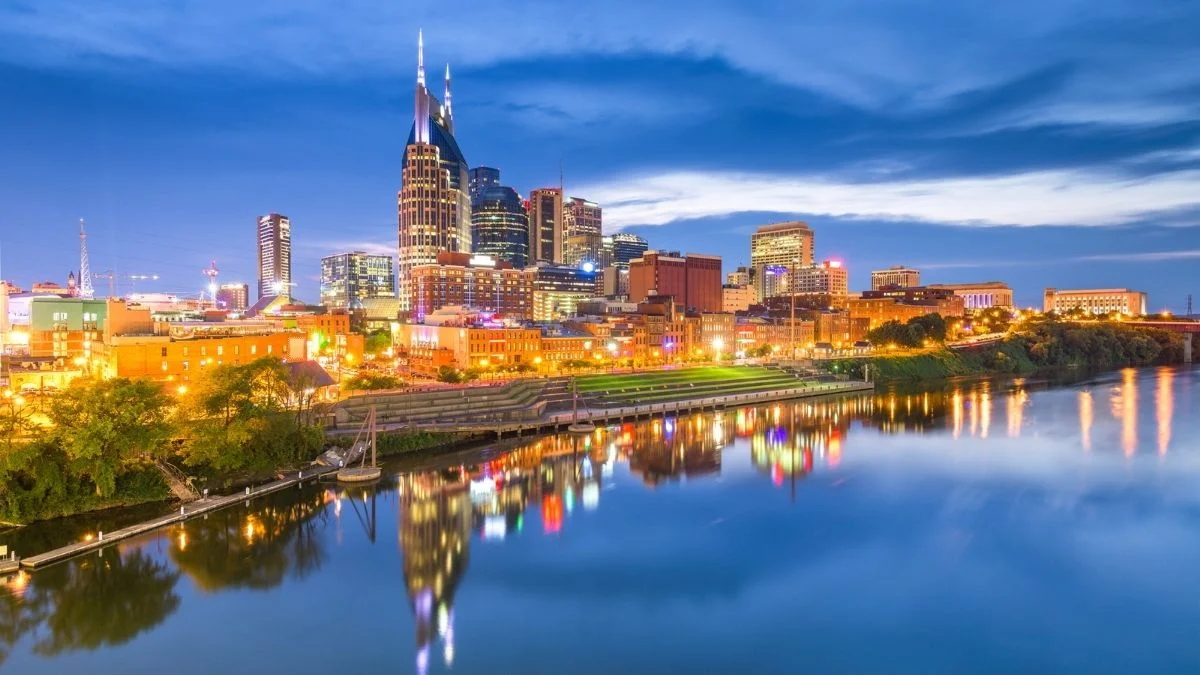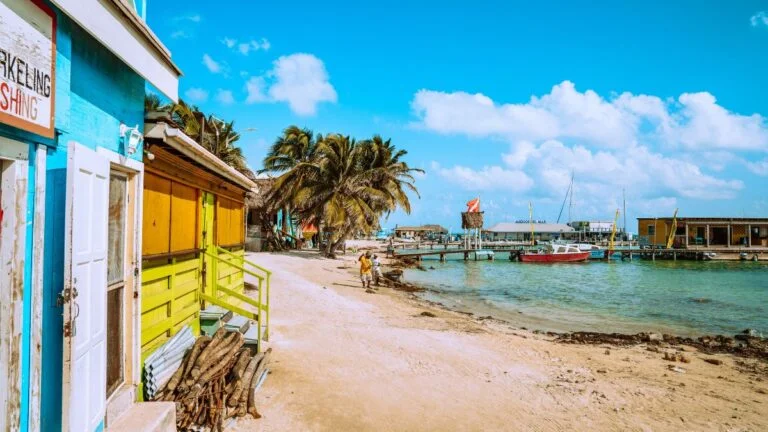Worst Time to Visit Tennessee: Avoiding Tornado Season and Music Festival Crowds

As participants in Amazon Associates and other programs, we earn from qualifying purchases. This comes at no additional cost to you. For more details, see our Affiliate Disclosure.
When planning a trip to Tennessee, the allure of its picturesque landscapes, rich musical heritage, and vibrant culture can be overwhelming. However, to make the most of your visit, it’s essential to be aware of certain times of the year that may not be ideal for travelers. Tornado season can bring unexpected and dangerous weather conditions, while popular music festivals might result in overcrowded venues and higher accommodation prices. This article aims to guide you through the less favorable times to visit Tennessee, ensuring you have a safer and more enjoyable experience.
Understanding Tennessee’s Tornado Season: What to Expect
Tennessee, like much of the American South, is no stranger to severe weather, particularly tornadoes. Nestled in what is often referred to as “Dixie Alley,” this state has its own unique tornado season, characterized by its frequency, patterns, and intensity. If you’re planning a trip, it’s essential to understand what to expect and how to stay safe.
Tennessee’s Tornado Geography and Climatology
The state’s topography, coupled with its position relative to the Gulf of Mexico and the Appalachian Mountains, plays a role in its tornado activity. While tornadoes can occur almost anywhere in the state, certain regions, particularly the western and middle parts, are more susceptible.
Two Distinct Tornado Peaks
Unlike the traditional tornado alley to the west, Tennessee experiences two peak tornado seasons. The primary season falls in the spring, between March and May, while a secondary, albeit less intense, season occurs in the late fall, from October to November. It’s during these periods that the clash of warm, moist air from the Gulf with cooler, drier air from the north creates conditions ripe for severe thunderstorms and tornadoes.
Daytime vs. Nighttime Tornadoes
Another unique and potentially dangerous characteristic of Tennessee’s tornadoes is their propensity to strike after dark. Nighttime tornadoes are particularly treacherous because they’re harder to see, giving residents and travelers less time to seek shelter. It’s estimated that Tennessee has one of the highest rates of nighttime tornadoes in the U.S.
Tornado Intensity and Duration
While many tornadoes in Tennessee are categorized as weaker on the Enhanced Fujita (EF) scale, often EF0 or EF1, the state has witnessed its fair share of stronger and more devastating tornadoes, reaching EF3 and beyond. These more intense tornadoes are capable of causing significant damage, uprooting trees, destroying buildings, and posing a genuine threat to life.
Staying Informed and Safe
Before and during your visit, it’s crucial to stay informed. Monitor local weather forecasts, especially if traveling during peak tornado months. Invest in a weather radio or download a reliable weather app on your smartphone, which can provide real-time alerts. Should a tornado warning be issued, seek shelter immediately, preferably in a basement or an interior room away from windows on the lowest floor of a sturdy building.
The Dangers of Severe Weather in Tennessee: Safety Tips for Travelers
Tennessee’s scenic beauty, from the rolling hills of its countryside to the vibrant pulse of its cities, attracts countless visitors each year. However, with its location in “Dixie Alley,” the state is also susceptible to a variety of severe weather threats beyond just tornadoes. For those planning a visit, understanding these dangers and knowing how to navigate them can be the difference between a memorable trip and a hazardous situation.
Thunderstorms and Lightning: Tennessee experiences frequent thunderstorms, especially during the warmer months. With these storms comes the danger of lightning. If you hear thunder, you’re close enough to be struck by lightning. Always seek shelter indoors and avoid open fields, tall trees, and water.
Flash Flooding: Heavy rainfall, particularly during thunderstorms, can lead to sudden flash floods. These can quickly inundate roads, trails, and low-lying areas. Never attempt to drive through flooded roads — it takes just a few inches of moving water to sweep a vehicle away.
Hail: Hailstorms, though less common, can occur, especially during severe thunderstorms. Hailstones can damage cars, roofs, and, most importantly, can cause injury. If caught outside during a hailstorm, find shelter immediately, preferably indoors or, if driving, pull over safely.
High Winds and Straight-Line Winds: Apart from tornadoes, Tennessee can experience powerful straight-line winds, resulting from severe thunderstorms. These winds can reach hurricane strength, toppling trees and power lines and causing structural damage. Always secure outdoor items when high winds are forecasted, and stay away from windows.
Winter Weather: While Tennessee generally has milder winters compared to its northern neighbors, it can still face ice storms, sleet, and occasional snowfalls. Roads can become slippery and treacherous, and power outages are not uncommon during ice storms. If traveling during winter, always check road conditions and ensure your vehicle is winter-ready.
Safety Precautions for Travelers:
- Stay Informed: Regularly check local weather forecasts, especially if outdoor activities are planned. Familiarize yourself with the terms used, such as “watch” (conditions are favorable) versus “warning” (the event is occurring or imminent).
- Prepare an Emergency Kit: If road-tripping, pack an emergency kit that includes water, non-perishable food, a flashlight, batteries, a first-aid kit, blankets, and any necessary medications.
- Download Weather Apps: These can provide real-time alerts and updates. Many apps offer location-based warnings, crucial for those unfamiliar with the area.
- Know Your Location: When traveling, be aware of your surroundings. Recognize landmarks, roads, and any potential shelters, especially if partaking in outdoor activities.
- Follow Local Guidelines: If authorities advise against travel or recommend taking shelter, heed their advice.
Tennessee’s charm and allure are undeniable, but it’s imperative for travelers to respect the unpredictable nature of its weather. By staying informed and prepared, you can enjoy the Volunteer State’s offerings while ensuring the safety and well-being of your travel group.
Music Festivals in Tennessee: A Blessing and a Curse
Few states can rival Tennessee’s rich musical tapestry. From the soulful blues of Memphis to the country twangs of Nashville and the eclectic rhythms of Bonnaroo in Manchester, Tennessee is a haven for music lovers. Festivals here are celebrations of this heritage, drawing thousands from around the world. Yet, for all the euphoria and soul-stirring melodies, there’s a flip side. The influx of festival-goers can lead to overcrowded venues, spiked accommodation prices, and overburdened local infrastructures. Here, we delve into the dual nature of Tennessee’s music festivals, exploring both their magic and the challenges they pose.
The Magic of Music Festivals:
- Cultural Significance: Tennessee’s festivals often serve as a testament to its historical and cultural significance in the music world. Events like the CMA Music Festival or the Beale Street Music Festival not only showcase top-tier talent but also spotlight emerging artists, keeping the state’s musical legacy vibrant and evolving.
- Economic Boost: These events significantly contribute to the local economy. Festival-goers spend on accommodations, dining, shopping, and other local attractions, creating a surge in revenue for many businesses.
- Community and Unity: Festivals foster a sense of community. Attendees, irrespective of their backgrounds, come together, united by their love for music. Friendships are forged, memories are made, and for a few days, music becomes a universal language binding everyone together.
The Challenges and Drawbacks:
- Overcrowding: Popular festivals can attract vast numbers, leading to overcrowded venues. This not only diminishes the overall experience for many but can also pose safety concerns.
- Accommodation Woes: With the influx of attendees, local accommodations, from hotels to B&Bs, often get booked months in advance. Prices skyrocket, and last-minute planners can find themselves without a place to stay.
- Traffic and Transportation: Roads leading to festival venues can become heavily congested. Public transportation can be overwhelmed, and parking becomes a significant concern, often leading to long walks or wait times.
- Environmental Concerns: Large festivals, if not managed properly, can lead to environmental issues. Excessive litter, strain on local utilities, and damage to public parks or venues can have long-term consequences.
- Impact on Locals: While many locals benefit economically from festivals, others find the noise, traffic, and general disruption a hindrance to their daily lives.
Striking the Balance:
For visitors, the key is to plan ahead. If you’re keen on experiencing a festival without the downsides, consider attending some of the smaller, more intimate events. Book accommodations early, familiarize yourself with transportation options, and always be respectful of the local environment and community.
For Tennessee, the challenge is to maintain the allure of these festivals while ensuring the safety and satisfaction of both attendees and residents. With proper planning, infrastructure development, and community involvement, the state can continue to be a coveted musical destination, where festivals remain more of a blessing than a curse.
Peak Festival Dates to Mark on Your Calendar
Tennessee’s musical landscape is dotted with festivals throughout the year, each celebrating a unique genre or aspect of the state’s rich musical heritage. If you’re looking to immerse yourself in these musical extravaganzas, it’s crucial to be aware of peak festival dates. Not only will this help you plan your trip efficiently, but it’ll also give you a heads-up on times when accommodation might be scarce or prices higher than usual. Here are some of the most notable festivals in Tennessee and their typical dates:
- Bonnaroo Music and Arts Festival:
- Where: Manchester
- When: Mid-June
- Highlights: A multi-genre music festival that draws major international acts and boasts an eclectic lineup from rock to hip-hop, and electronic to reggae.
- CMA Music Festival (Country Music Association Festival):
- Where: Nashville
- When: Early June
- Highlights: A premier event for country music lovers, featuring performances from top artists, autograph signings, and fan interactions.
- Beale Street Music Festival:
- Where: Memphis
- When: Early May
- Highlights: A three-day event showcasing a mix of contemporary rock, blues, soul, and R&B acts.
- Memphis in May:
- Where: Memphis
- When: Entire month of May
- Highlights: A month-long festival celebrating the culture and heritage of Memphis, with the Beale Street Music Festival being a significant component.
- Bristol Rhythm & Roots Reunion:
- Where: Bristol
- When: Mid-September
- Highlights: Celebrating the twin cities of Bristol, this festival offers a mix of country, folk, bluegrass, and Americana performances.
- Riverbend Festival:
- Where: Chattanooga
- When: Early June
- Highlights: An eight-day event featuring artists from a variety of genres, complete with fireworks on the final night.
- Nashville Pride:
- Where: Nashville
- When: Late June
- Highlights: A vibrant celebration of the LGBTQ+ community with musical performances, parades, and community events.
- Americana Music Festival & Conference:
- Where: Nashville
- When: Mid-September
- Highlights: An event celebrating Americana and roots music, complete with panel discussions, seminars, and showcases.
While these are some of the major festivals, Tennessee hosts numerous other smaller events and celebrations throughout the year. Always check official festival websites or local tourism boards for exact dates as they might change from year to year. And remember, during these peak festival dates, it’s wise to plan accommodations and transportation well in advance to ensure a smooth and enjoyable experience.
Navigating Crowds: The Drawbacks of Tennessee’s Music Scene
Tennessee’s vibrant music scene, rooted in rich tradition and continually evolving, has given the world iconic sounds ranging from the blues to country to rock ‘n’ roll. Its cities pulse with live music, attracting enthusiasts from every corner of the globe. However, this musical magnetism inevitably draws large crowds, leading to several drawbacks. For those considering a trip to experience Tennessee’s tunes firsthand, it’s essential to understand the challenges posed by these crowds and how best to navigate them.
1. Overwhelmed Venues: Popular venues, especially iconic ones like Nashville’s Grand Ole Opry or the clubs of Beale Street in Memphis, can quickly become packed. This can mean longer wait times, limited seating, and a less intimate musical experience.
2. Inflated Accommodation and Service Prices: With a surge in demand during popular music events or festivals, hotel rates can skyrocket. Restaurants and bars may also have higher prices, especially those close to major venues or festival grounds.
3. Traffic Congestion and Limited Parking: The influx of visitors can lead to traffic bottlenecks, especially in downtown areas. Parking becomes a premium commodity, and if you’re driving, you might find yourself parking far from your destination or paying exorbitant fees for closer spots.
4. Noise Levels: While many visit Tennessee for the music, the continuous sound in densely populated musical hubs can become overwhelming, especially if you’re seeking a quieter experience or traveling with children.
5. Longer Service Times: Popular dining or drinking spots, especially those known for live music, might have longer wait times. Service can become slower, and reservations might be harder to secure.
6. Safety Concerns: Like any place experiencing a large influx of people, there’s a heightened need for personal safety awareness. Pickpocketing, although not rampant, can become a concern, especially in densely crowded areas.
Tips for Navigating the Crowds:
- Plan Ahead: Secure accommodations well in advance, especially if you’re visiting during a major festival or event.
- Use Public Transportation: To avoid parking hassles, consider using public transit systems or rideshare services.
- Off-Peak Visits: If possible, plan your visit during weekdays or off-peak seasons. While you might miss some larger events, you’ll experience a more relaxed atmosphere.
- Ear Protection: If attending a major festival or concert, consider ear protection, especially for children, to guard against prolonged exposure to high decibel levels.
- Stay Alert: Keep personal belongings secure and be aware of your surroundings, especially in large crowds.
- Explore Lesser-Known Venues: Instead of only visiting the most popular spots, consider seeking out lesser-known venues. Not only will this offer a more intimate experience, but you’ll also discover hidden gems of the Tennessee music scene.
While the crowds are a testament to Tennessee’s unparalleled musical allure, they can pose challenges to the unprepared traveler. However, with a bit of foresight and flexibility, one can immerse in the state’s sonic splendors while sidestepping the drawbacks.
Alternative Dates for a More Peaceful Visit
While Tennessee’s festivals and major music events can be thrilling, they also lead to crowded venues, packed streets, and inflated prices. If you’re looking for a calmer, more intimate experience of Tennessee’s music and culture, consider planning your visit during off-peak times. Here are some alternative dates and periods when you can enjoy a more peaceful visit:
1. Late Winter – Early Spring (Late February to Early April): Before the rush of spring breakers and summer vacationers, these months offer cooler weather and fewer crowds. The landscapes start coming alive, especially with the onset of spring, making it an ideal time for peaceful strolls and outdoor activities.
2. Late Summer – Early Fall (Late August to Early October): As students head back to school and before the fall foliage tourists arrive, there’s a brief window when you can experience Tennessee’s beauty with fewer people around. This period also avoids the peak of the summer heat.
3. Midweek Anytime: Regardless of the season, midweek visits (Tuesday to Thursday) often mean fewer crowds. Most major attractions, including music venues, operate throughout the week, but with significantly fewer visitors than on weekends.
4. Avoid Major Holidays and Festivals: Keep an eye on Tennessee’s major events calendar. By avoiding dates around big festivals or national holidays, you’ll sidestep the largest influx of tourists.
5. Explore Smaller Towns: Instead of the bustling hubs of Nashville, Memphis, or Chattanooga, consider towns like Franklin, Cookeville, or Jonesborough. These smaller destinations offer rich history, local music scenes, and a laid-back atmosphere.
6. Schedule Around School Calendars: Traveling during times when local schools are in session can mean fewer family travelers and quieter attractions. Keep in mind the general school calendar and plan accordingly.
Tips for a Peaceful Visit:
- Book in Advance: Even during off-peak times, it’s a good idea to book accommodations and any special tours or shows in advance.
- Visit Early or Late: Many attractions and popular spots are quieter early in the morning or later in the afternoon.
- Local Recommendations: Engage with locals for recommendations on peaceful spots or less-known venues that might not be crowded.
- Stay Flexible: Sometimes, despite the best planning, you might encounter unexpected crowds or events. Stay flexible with your itinerary, and you might discover new, unplanned experiences.
Tennessee, with its rich musical legacy, picturesque landscapes, and warm hospitality, is a joy to visit any time of the year. By opting for these alternative dates, you can enjoy a more relaxed pace and soak in the state’s offerings without the rush of peak tourist seasons.
Tips for Safe and Enjoyable Travel During Peak Times
Traveling during peak times, especially in a music and culture hotspot like Tennessee, can be exhilarating. The energy, the crowd’s shared enthusiasm, and the vibrant atmosphere are unparalleled. However, peak times also come with challenges. To ensure your trip is both safe and enjoyable, here are some tried and tested tips:
1. Plan Ahead:
- Book Early: Secure accommodations, event tickets, and even restaurant reservations well in advance to avoid disappointment.
- Research: Familiarize yourself with the major events happening during your visit and their locations. This can help you navigate and prioritize your activities.
2. Opt for Public Transport:
- Major cities like Nashville and Memphis have decent public transportation systems. During peak times, these can be more efficient than trying to drive and park.
3. Pack Smart:
- Bring comfortable shoes suitable for walking.
- Always carry essentials like water, sunscreen, and portable phone chargers. Consider a lightweight backpack for carrying these items.
4. Stay Informed:
- Download local apps or follow local news and social media pages for real-time updates on traffic, weather, and any potential disruptions.
5. Prioritize Safety:
- Stay Alert: Large crowds can be overwhelming, so always be aware of your surroundings.
- Keep Valuables Close: Consider using anti-theft bags or money belts.
- Stay Connected: Share your itinerary with a trusted friend or family member. Regularly check-in, especially if traveling alone.
- Limit Alcohol Consumption: While it’s tempting to indulge, especially during festivals, limit alcohol to maintain clear judgment and stay alert.
6. Be Patient and Flexible:
- Expect some delays, be it in traffic, at restaurants, or entrance queues. Having a flexible schedule can reduce stress and allow for spontaneous fun.
7. Schedule Downtime:
- Don’t over-pack your itinerary. Allow for some unplanned time to relax, explore, or simply soak in the atmosphere.
8. Hydrate and Eat Regularly:
- With all the excitement, it’s easy to forget basic needs. Keep drinking water, especially if it’s hot, and make time for regular meals.
9. Engage with Locals:
- Local residents can offer insights on less-crowded spots, shortcuts, or hidden gems that might not be on the tourist radar.
10. Plan Your Exits:
- If attending a major event or festival, always be aware of the nearest exits. It’s not just convenient for leaving but also crucial for safety in case of emergencies.
11. Respect the Locale:
- Remember to respect local customs, environments, and residents. Avoid littering, and follow any guidelines or rules set by event organizers.
12. Consider Off-Peak Activities:
- Even during peak times, there might be attractions or activities that are less popular but equally rewarding. Seek these out for a break from the crowds.
While peak times can be challenging, they also offer a vibrancy that can make your trip memorable. With a bit of preparation and a positive attitude, you can safely navigate the crowds and make the most of your Tennessee adventure.
The Lesser-Known Festivals: Experience the Music Without the Masses
Tennessee’s musical fabric is woven not just by its marquee festivals and events, but also by the myriad of smaller, intimate festivals that dot its calendar. These lesser-known gems offer authentic experiences, capturing the state’s rich musical heritage while allowing visitors to escape the overwhelming crowds of larger events. Here’s a glimpse into some of these hidden treasures:
1. Secret City Festival (Oak Ridge):
- When: June
- Highlights: Celebrating Oak Ridge’s unique history, including its role in the Manhattan Project, the festival mixes history with arts, crafts, and, of course, music, spotlighting local and regional talents.
2. Smithville Fiddlers’ Jamboree and Crafts Festival (Smithville):
- When: July
- Highlights: A deep dive into Appalachian music and crafts, this event focuses on folk music, traditional dances, and showcasing old-time Appalachian skills.
3. Cornbread Fest (South Pittsburg):
- When: April
- Highlights: While the primary draw is the celebration of cornbread in all its forms, the festival also features a mix of folk, country, and bluegrass performances.
4. Muddy Roots Music Festival (Cookeville):
- When: September
- Highlights: An eclectic blend of roots, bluegrass, punk rock, and everything in between, this event caters to those looking for an alternative music scene.
5. Jug Band Jubilee (Louisville):
- When: September
- Highlights: The festival celebrates the jug band music tradition, which predates blues and jazz, offering workshops and engaging performances.
6. Unicoi County Apple Festival (Erwin):
- When: October
- Highlights: While the apples are the stars, the festival also offers a stage to local musicians, bringing mountain music to the forefront.
7. African Street Festival (Jackson):
- When: September
- Highlights: Celebrating African and African American culture, the festival blends music, dance, food, and arts for a holistic experience.
Tips for Enjoying Lesser-Known Festivals:
- Research in Advance: While these festivals might not be as crowded, some might have limited accommodations nearby, so book ahead.
- Engage with the Community: These smaller festivals offer a chance to mingle with locals, so take the opportunity to learn from them and immerse yourself in the culture.
- Pack Accordingly: Some of these festivals might be in more rural or undeveloped areas. Ensure you have essentials, especially if facilities are limited.
- Stay Open-Minded: The beauty of lesser-known festivals lies in their uniqueness. You might encounter music or traditions unfamiliar to you—embrace the new experiences.
- Support Local Artisans: Many of these festivals will have stalls or shops set up by local artisans. Purchasing from them supports local communities and gives you a tangible memory of your experience.
Diving into Tennessee’s lesser-known festivals offers a window into the state’s rich, diverse, and continually evolving musical tapestry. By opting for these intimate events, you’re guaranteed an authentic, crowd-free, and memorable experience.






